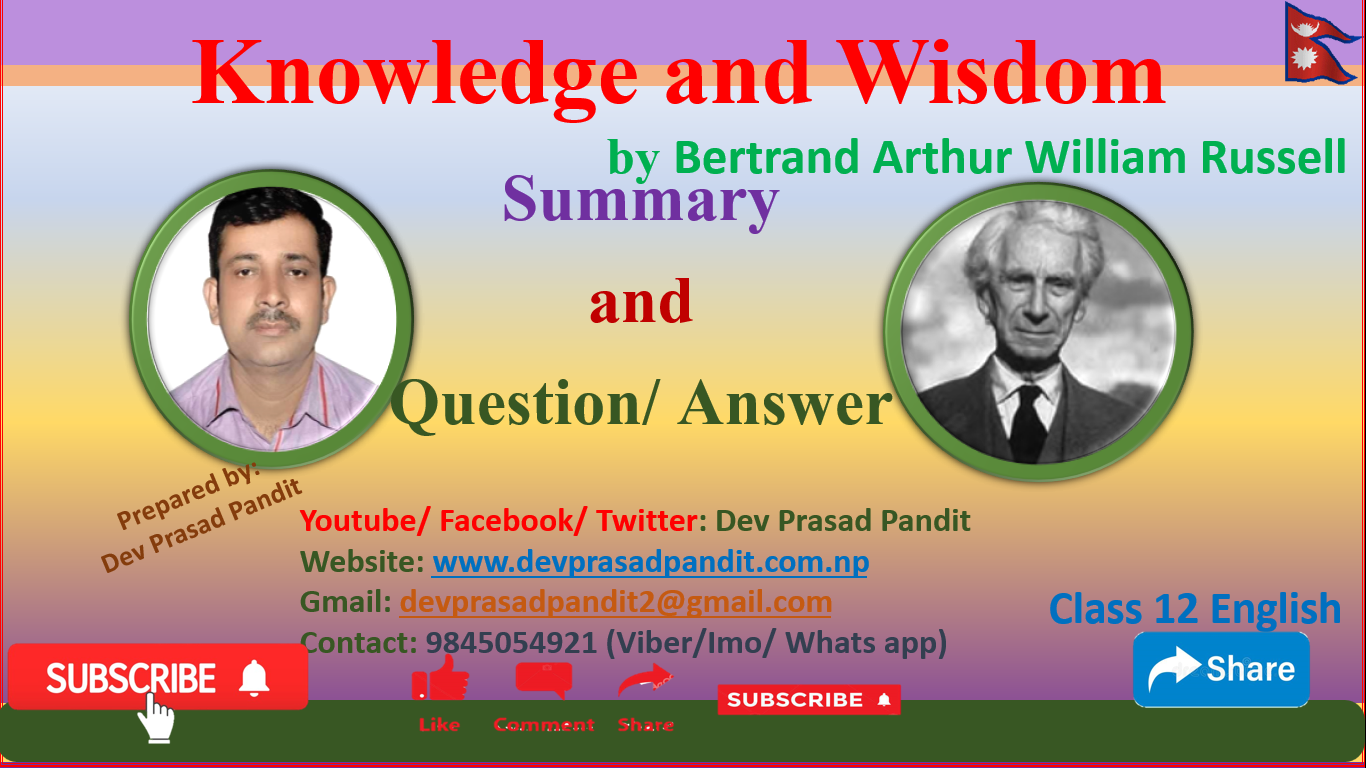Knowledge and Wisdom
by Bertrand Arthur William Russell
About
the author
Bertrand Arthur William Russell (1872–1970) was a British philosopher, logician, essayist and social critic best known for his work in mathematical logic and analytic philosophy. His most influential contributions include his championing of logicism (the view that mathematics is in some important sense reducible to logic), his refining of Gottlob Frege’s predicate calculus (which still forms the basis of most contemporary systems of logic), his defense of neutral monism (the view that the world consists of just one type of substance which is neither exclusively mental nor exclusively physical), and his theories of definite descriptions, logical atomism and logical types.
In this essay, Russell
differentiates between knowledge and wisdom. Knowledge and wisdom are different
things. According to him, knowledge is defined as the acquisition of data and
information, while wisdom is defined as the practical application and use of
the knowledge to create value. Wisdom is gained through learning and practical
experience, not just memorization.
Summary
The essay ‘Knowledge and Wisdom’ is written by a British
essayist Bertrand Arthur William
Russell. In this essay,
Russell differentiates between knowledge and wisdom. Knowledge and wisdom are
different things. According to him, knowledge is defined as the acquisition of
data and information whereas wisdom is defined as the practical application and
use of the knowledge to create value. Wisdom is gained through learning and
practical experience, not just memorization.
According to Russel, knowledge is defined as the acquisition
of data and information. It is like a generating theory. while wisdom is
defined as the practical application and use of the knowledge to create
value. Wisdom is gained through
learning and practical experience, not just memorization. A sense of proportion
is very much necessary for wisdom. By
inventing medicine, a scientist may reduce the infant death-rate. Apparently,
it leads to population explosion and shortage of food. The standard of life
comes down. If misused, knowledge of atom can lead human to destruction by
manufacturing nuclear weapon. Knowledge and Wisdom have the relation like
theory and practice.
In this essay the
essayist talks about several factors that contribute to wisdom. According to
him, the factors that contribute to wisdom are:
i) a sense of
proportion,
ii) aware
comprehensiveness and feeling
iii) emancipation
from personal prejudices
iv) impartiality and
v) intellectual
element
Only Knowledge or Wisdom can’t be sufficient. Both are equally important. Knowledge without
wisdom can be harmful. Even complete knowledge is
not enough. For example, Hegel wrote with great knowledge about history, but
made the Germans believe that they were a master race. It led to war. It is
necessary, therefore to combine knowledge with
feelings. We need wisdom both in public and private life. We need wisdom to
decide the goal of our life. We need it to free ourselves from personal
prejudices. Wisdom is needed to avoid dislike for one another. Two persons may
remain enemies because of their prejudice. If they can be told that we all have
flaws then they may become friends.
In this essay, Russell defines what wisdom is in the first
part and in the second part he talks about how it can be attained. Without
knowledge, wisdom cannot go forward. He says that wisdom and knowledge must go
ahead simultaneously. Thus, knowledge and wisdom
are remarkable gifts of the clear exposition of Russel. It shows Russel as a
great master of lucid style. His intellect is brilliant and his vision is
comprehensive.
For exercise CLICK HERE.
For ‘Humility’ CLICK HERE.
For all content CLICK HERE.






.png)
.png)
.png)
0 Comments